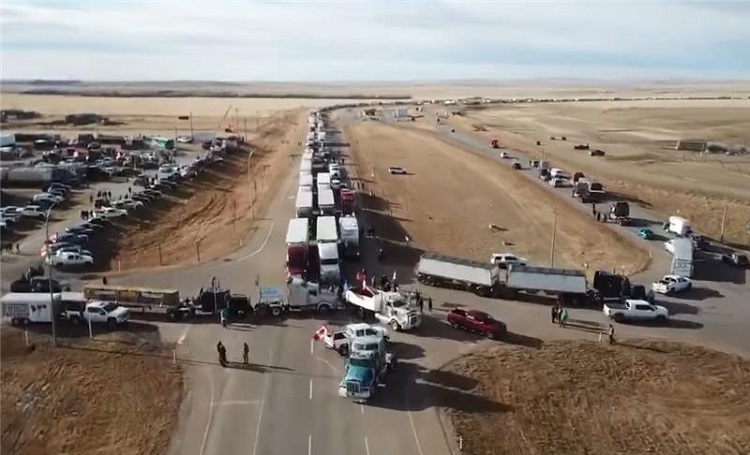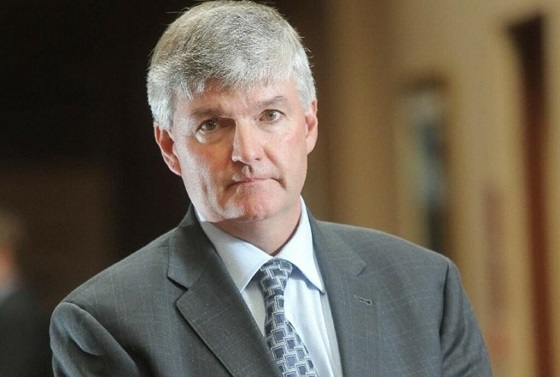Community
National Volunteer Week Feature: Central Alberta Refugee Effort Volunteer Profile

National Volunteer Week is a time to recognize, celebrate and thank Canada’s 13.3 million volunteers! Here at home, there are so many fantastic volunteers who help to build our communities by giving generously of their time & talents. This week, Todayville in partnership with Volunteer Central is profiling several incredible volunteer initiatives.
Today we’re taking a closer look at the Central Alberta Refugee Effort (C.A.R.E.) and one of it’s volunteers.
Bigazi Nsanzabera has been a volunteer with C.A.R.E. for almost 2 years. In that time, he has volunteered with the Public Awareness program at various events.

C.A.R.E. says volunteers like Bigazi are such a treasure not only for the organization, but also for the community. The organization says Bigazi is full of compassion and knowledge and that his willingness to share this knowledge with students and community members is amazing to watch. He is able to connect with the students not only in English but also in French, and of course his teaching skills come into play to deliver the message. Which is no surprise, as his professional background is in teaching.
As Bigazi explains in his own words: “Nothing pleases me more than sharing my story to the students. Many kids here don’t know Africa and its troubled history. So it is my pleasure to share my story with the students and teachers, I remember in one school, a child stood up after my presentation and gave me a ” thank you” note. Thanks to CARE for allowing me to be part of this”
When asked, how this volunteer work helps newcomers in the community, he replies “I always tell students that we are ALL One. We all have the same red blood in our veins and as Canada is a country of immigrants, we should strive to love one another and live in peace”
Bigazi is always willing and ready to help, he sees this as an opportunity to give back to the community. The schools, the community and especially C.A.R.E. appreciates his work and dedication to volunteering.
Interested in volunteering with C.A.R.E.? Click here for all the information you’ll need to share your unique talents, passion, knowledge and time to ensure the successful integration of newcomer immigrants and refugees.
C.A.R.E. was formed in 1979 by a group of concerned citizens who wanted to assist with the settlement of Indochinese refugees fleeing the aftermath of the Vietnam War. A year later, C.A.R.E. became a registered non-profit society. In 1982 it received status as a charitable organization. Since our founding, our mission has been to assist in the settlement and integration of immigrants and refugees in the community.
We provide settlement support to newcomers in Central Alberta, in close partnership with the Immigration and Settlement Service of Catholic Social Services
Our Guiding Principles
Throughout our daily work we are loyal to the following guiding principles:
- To empower clients to become self-sufficient
- To provide accessible community based services and programs
- To appreciate cultural diversity and differences
- To respect clients’ right to make their own choices
- To ensure clients of confidentiality
- To value clients, volunteers and staff
- To serve everyone with fairness and respect
- Our office is fragrance free. Thank you for not wearing scented products when visiting our office.
Through our comprehensive website, convenient downtown location, and relevant programs and workshops, we connect volunteers, non-profit organizations, and businesses to create successful volunteer relationships in Central Alberta.
At Volunteer Central, we…
- offer a listing of volunteer opportunities
- list non-profit employment opportunities
- host training programs and workshops
- develop corporate volunteer programs
- promote and support community events
- build capacity in the nonprofit sector across central Alberta

Community
SPARC Red Deer – Caring Adult Nominations open now!

Red Deer community let’s give a round of applause to the incredible adults shaping the future of our kids. Whether they’re a coach, neighbour, teacher, mentor, instructor, or someone special, we want to know about them!
Tell us the inspiring story of how your nominee is helping kids grow up great. We will honour the first 100 local nominees for their outstanding contributions to youth development. It’s time to highlight those who consistently go above and beyond!
To nominate, visit Events (sparcreddeer.ca)

Addictions
‘Harm Reduction’ is killing B.C.’s addicts. There’s got to be a better way

From the Frontier Centre for Public Policy
B.C. recently decriminalized the possession of small amounts of illicit drugs. The resulting explosion of addicts using drugs in public spaces, including parks and playgrounds, recently led the province’s NDP government to attempt to backtrack on this policy
Fuelled by the deadly manufactured opioid fentanyl, Canada’s national drug overdose rate stood at 19.3 people per 100,000 in 2022, a shockingly high number when compared to the European Union’s rate of just 1.8. But national statistics hide considerable geographic variation. British Columbia and Alberta together account for only a quarter of Canada’s population yet nearly half of all opioid deaths. B.C.’s 2022 death rate of 45.2/100,000 is more than double the national average, with Alberta close behind at 33.3/100,00.
In response to the drug crisis, Canada’s two western-most provinces have taken markedly divergent approaches, and in doing so have created a natural experiment with national implications.
B.C. has emphasized harm reduction, which seeks to eliminate the damaging effects of illicit drugs without actually removing them from the equation. The strategy focuses on creating access to clean drugs and includes such measures as “safe” injection sites, needle exchange programs, crack-pipe giveaways and even drug-dispensing vending machines. The approach goes so far as to distribute drugs like heroin and cocaine free of charge in the hope addicts will no longer be tempted by potentially tainted street drugs and may eventually seek help.
But safe-supply policies create many unexpected consequences. A National Post investigation found, for example, that government-supplied hydromorphone pills handed out to addicts in Vancouver are often re-sold on the street to other addicts. The sellers then use the money to purchase a street drug that provides a better high — namely, fentanyl.
Doubling down on safe supply, B.C. recently decriminalized the possession of small amounts of illicit drugs. The resulting explosion of addicts using drugs in public spaces, including parks and playgrounds, recently led the province’s NDP government to attempt to backtrack on this policy — though for now that effort has been stymied by the courts.
According to Vancouver city councillor Brian Montague, “The stats tell us that harm reduction isn’t working.” In an interview, he calls decriminalization “a disaster” and proposes a policy shift that recognizes the connection between mental illness and addiction. The province, he says, needs “massive numbers of beds in treatment facilities that deal with both addictions and long-term mental health problems (plus) access to free counselling and housing.”
In fact, Montague’s wish is coming true — one province east, in Alberta. Since the United Conservative Party was elected in 2019, Alberta has been transforming its drug addiction policy away from harm reduction and towards publicly-funded treatment and recovery efforts.
Instead of offering safe-injection sites and free drugs, Alberta is building a network of 10 therapeutic communities across the province where patients can stay for up to a year, receiving therapy and medical treatment and developing skills that will enable them to build a life outside the drug culture. All for free. The province’s first two new recovery centres opened last year in Lethbridge and Red Deer. There are currently over 29,000 addiction treatment spaces in the province.
This treatment-based strategy is in large part the work of Marshall Smith, current chief of staff to Alberta’s premier and a former addict himself, whose life story is a testament to the importance of treatment and recovery.
The sharply contrasting policies of B.C. and Alberta allow a comparison of what works and what doesn’t. A first, tentative report card on this natural experiment was produced last year in a study from Stanford University’s network on addiction policy (SNAP). Noting “a lack of policy innovation in B.C.,” where harm reduction has become the dominant policy approach, the report argues that in fact “Alberta is currently experiencing a reduction in key addiction-related harms.” But it concludes that “Canada overall, and B.C. in particular, is not yet showing the progress that the public and those impacted by drug addiction deserve.”
The report is admittedly an early analysis of these two contrasting approaches. Most of Alberta’s recovery homes are still under construction, and B.C.’s decriminalization policy is only a year old. And since the report was published, opioid death rates have inched higher in both provinces.
Still, the early returns do seem to favour Alberta’s approach. That should be regarded as good news. Society certainly has an obligation to try to help drug users. But that duty must involve more than offering addicts free drugs. Addicted people need treatment so they can kick their potentially deadly habit and go on to live healthy, meaningful lives. Dignity comes from a life of purpose and self-control, not a government-funded fix.
Susan Martinuk is a senior fellow at the Frontier Centre for Public Policy and author of the 2021 book Patients at Risk: Exposing Canada’s Health Care Crisis. A longer version of this article recently appeared at C2CJournal.ca.
-

 Brownstone Institute1 day ago
Brownstone Institute1 day agoDeborah Birx Gets Her Close-Up
-

 Alberta1 day ago
Alberta1 day agoCoutts Three verdict: A warning to protestors who act as liaison with police
-

 Business2 days ago
Business2 days agoCanada’s economy has stagnated despite Ottawa’s spin
-

 Alberta1 day ago
Alberta1 day agoAlberta moves to protect Edmonton park from Trudeau government’s ‘diversity’ plan
-

 Energy1 day ago
Energy1 day agoCanada Has All the Elements to be a Winner in Global Energy — Now Let’s Do It
-

 Fraser Institute2 days ago
Fraser Institute2 days agoPowerful players count on corruption of ideal carbon tax
-

 COVID-192 days ago
COVID-192 days agoTrudeau gov’t budgets additional $36 million for its COVID vaccine injury program
-

 Opinion2 days ago
Opinion2 days agoFentanyl Fiasco: The Tragic Missteps of BC’s Drug Policy





